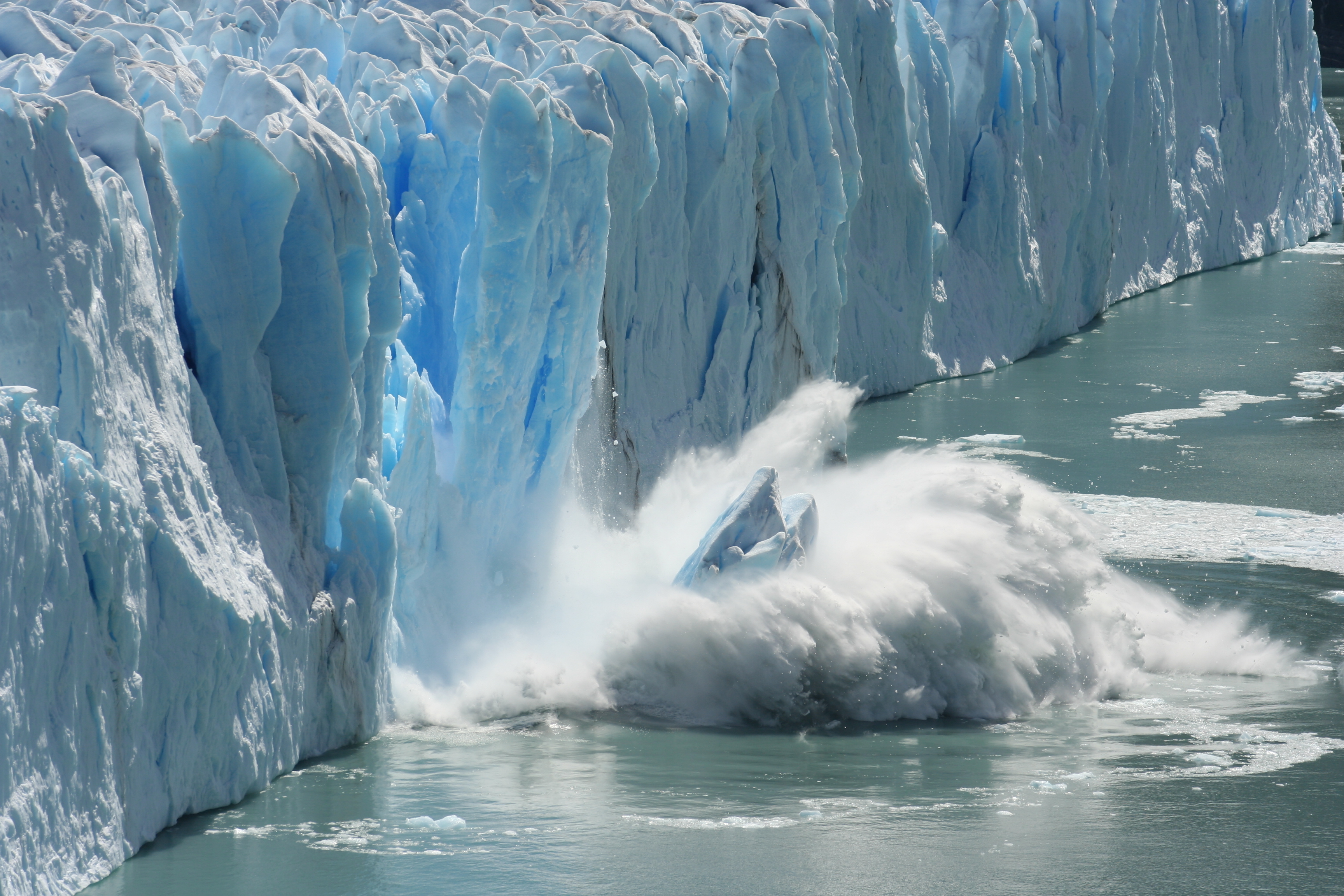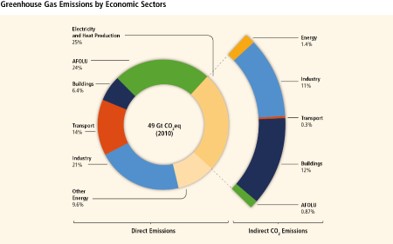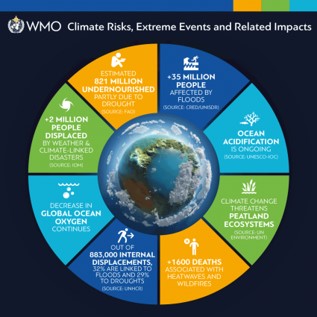
One of the most important environmental issues we face is climate change and its impacts. It is an ongoing phenomenon that affects our planet and one that we can all help to minimize. In this blog, we consider the key factors that are contributing to climate change, and suggest some simple changes that can help to combat global warming.
The Greenhouse Effect
Climate change refers to a large-scale, long-term shift in the planet's weather patterns and average temperatures. Since the mid-1800's, humans have contributed to the release of carbon dioxide and other greenhouse gases into the air. Once in the atmosphere, greenhouse gases such as carbon dioxide form a 'blanket' around the planet. This blanket traps the heat from the sun and causes the earth to heat up.
This effect was noticed as far back as the 1980's. In 1988, the International Panel on Climate Change (IPCC) was set up to provide governments with information to tackle climate change. Evidence has shown that the high levels of greenhouse gases in the atmosphere are the leading cause of increasing global temperatures. The average temperature of the planet has risen by around 1°C since the Industrial Revolution, which is a rapid change in terms of our global climate system, given the fact that previous global changes have happened over much longer periods of time. It is also important to remember that the world is not warming evenly, so the temperature increase is higher than 1°C in some countries.
The greenhouse gas blanket is now thicker and is absorbing more infrared radiation than before. In other words, the greenhouse effect is stronger and, instead of keeping the earth at a stable temperature, it is causing the planet to heat up. The following chart shows the human-made greenhouse gas emissions:

(Chart taken from the IPCC AR5 report. AFOLU = Agriculture, Forestry, and Other Land Use.)
Changing the Climate
According to IPCC human influence on the climate system is clear, and recent anthropogenic emissions of greenhouse gases are the highest in history. Recent climate changes have had widespread impacts on human and natural systems.
Changes to the climate system include:
- Rising ocean levels – Rising temperatures are causing glaciers and ice sheets to melt, adding more water to the oceans and causing the ocean level to rise. Oceans absorb 90% of the extra heat from global warming: warmer water expands, and so our oceans are taking up more space.
- Ocean acidification – Ocean acidification occurs when the ocean absorbs carbon dioxide and becomes more acidic. It is often called the 'evil twin' of climate change.
- Extreme weather events – Climate change is causing many extreme weather events to become more intense and frequent, such as heatwaves, droughts, and floods.
- Flooding of coastal regions – Coastal cities are at risk from flooding as sea levels continue to rise.
- Food insecurity – High temperatures, extreme weather events, flooding, and droughts can damage farmland. This makes it difficult for farmers to grow crops and means that their yield of crops each year is uncertain.
- Conflict and climate migrants – Climate change is a stress multiplier – it can take existing problems, such as lack of food or shelter, and make them worse. This can cause people to fight over resources (food, water, and shelter), or to migrate.
- Damage to marine ecosystems – Rising ocean temperatures, ocean acidification, and ocean anoxia (lack of oxygen) are damaging to marine life such as fish and coral reefs.

Image by ‘WMO Statement on the state of the global climate in 2018’, WMO, 2019
What can we do about it?
ASL Global understands the urgency of the situation, strives to reduce its impacts on the environment and do business in a sustainable manner. We believe that both as individuals and as a business we can work towards discovering the most sustainable solutions. In accordance with our environmental policy we will:
- Reduce our energy consumption
- Identify and implement alternative solutions regarding renewable energy
- Engage with stakeholders to promote awareness and combat the challenges
- Track & manage our carbon footprint through different offsetting activities
- Work with client and suppliers on our products’ life cycle
Can we take individual action?
Yes! As individuals, there are several things we can do to make a direct, positive impact on the Climate Change crisis:
- Shop for energy-efficient products
Using energy-efficient products enables us to save energy, money and reduce pollution. Some may worry about the high prices of energy-efficient appliances, but in the long-term, you can save money on electricity bills. You can also replace conventional lights with LED light bulbs which use less energy, or install solar panels.
- Implement waste management
According to the World Bank, every person generates 0.74 kilograms of waste each day. Emissions from incineration and landfills include CO2 and methane, and contribute significantly to greenhouse gas emissions. Sort out your waste, some food waste can be composted, and other items, such as aluminium cans, glass, cardboard and paper can be recycled.
- Volunteer
Climate change can have a greater impact on developing countries, because resources to mitigate the effects are more limited. Fewer resources in areas such as education, food security, fresh water, and infrastructure can make a community more vulnerable to the influences of climate change and decrease their ability to remedy its effects. You can choose to volunteer in developing countries to support the local environment and community.
At ASL Global, we are committed to creating a more sustainable business, through a variety of proactive activities. .

Discover more about our ONE WORLD initiative
Are you looking for innovative, sustainable marketing services support? Contact us to discover how ASL can help your marketing campaigns become more environmentally sustainable and socially responsible.







